Survivor is of the fittest even if you didn’t emerge from the floods
People forget differences of religion and ethnicity as relief-bearing trucks are attacked.
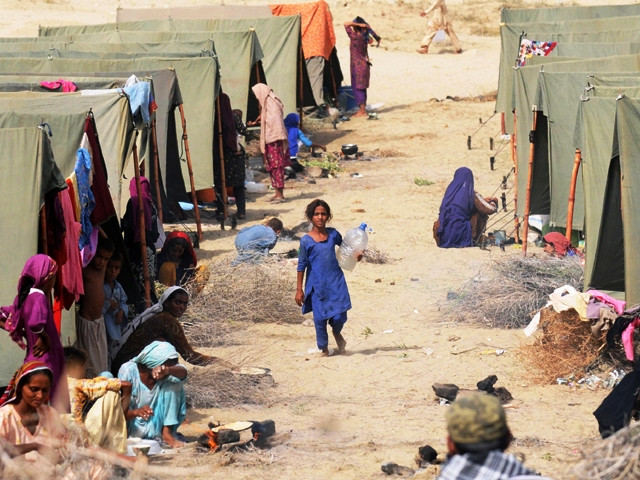
Survivor is of the fittest even if you didn’t emerge from the floods
A large number of flood survivors settled in Sehwan Sharif over a week ago, when water from Manchhar Lake entered the city and destroyed several villages. While some people took refuge in the camps set up by the government, others decided to live with their relatives and there are many more still looking for shelter.
When relief goods enter Sehwan Sharif, they are welcomed by a mob of around one hundred people, many of them flood survivors and many of them not. They block the road, in front of the police station, where two policemen stand guard to protect the building from the angry mob.
The truck tries to pass through the barricades erected by the people who start throwing stones to make it stop. Men, women and children all run towards it.
“Throw the driver out,” someone shouts and before you know it, the driver is pulled out of the vehicle. The mob heads for the back.
Once the boxes are ripped apart, the fights begin. Everyone wants to take away as much as they can carry. In some cases, the women and children stand at the edge of the crowd to catch the goods the men throw at them.
The policemen watch from the sidelines. If the mob gets worked up into attacking the police station, they fire in to the air and keep the crowd away.
Police version
“Saeen, what can we do?” says Sharif, a police official standing on one of the boundary walls of the station. He adjusts his teargas gun as he speaks. “If we fire at them everyone will curse the police and the government will punish us. If we don’t, then the people supplying the relief goods blame us.”
This has been going on for the past one week but the police are helpless, Sharif says, adding that they have been ordered to only protect the building and avoid a conflict with the survivors.
Who are the looters?
Murtaza Baloch, who runs a tea stall in front of the area where the looting takes place, says that some of the looters really deserve aid. But a majority of them are residents of Sehwan Sharif, who have found an easy way to earn money and food.
“They are not humans to be looting something that is supposed to be delivered to their brothers in need,” he went on to say.
Ali Bux, 47, pulls away with scratches on his face. His head was bleeding and his shirt was torn and he still had not managed to get his share of the goods. “I came from Ammara village because everything is ruined there,” he explains. “We slept without eating anything for one day.” According to him, someone asked him to sit on the main road, where people would be distributing relief goods.
“I came but no one gave me anything,” says Buksh. “In fact, those who were powerful were taking the food so my son and I joined the mob,” he adds.
Looters on motorcycles
Before the truck arrived at the camp, there were at least eight motorcycles standing at the site. Once the looting was over, the men on motorcycles had escaped with the goods.
I managed to get hold of one of them as he was starting his motorcycle. “Hum apnay liya nahi lai jaraha. Hamaray ghar mai mehman ae hain [We are not taking these for ourselves. We have guests over at our house],” Mussarat says in his haste to leave.
DDO Sehwan Sharif Sohail Bachani says that they are helpless in this scenario. On one hand, they have to protect the relief goods; while on the other hand, they cannot manhandle the looters.
“They even looted a truck in front of my office but we are not allowed to use force,” he points out.
Published in The Express Tribune, September 24th, 2010.

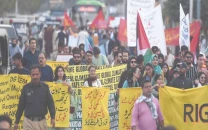
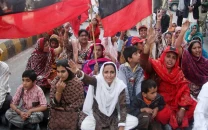
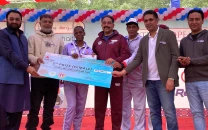
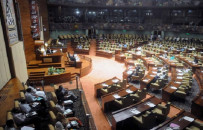




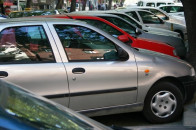

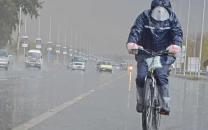
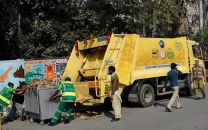






COMMENTS
Comments are moderated and generally will be posted if they are on-topic and not abusive.
For more information, please see our Comments FAQ